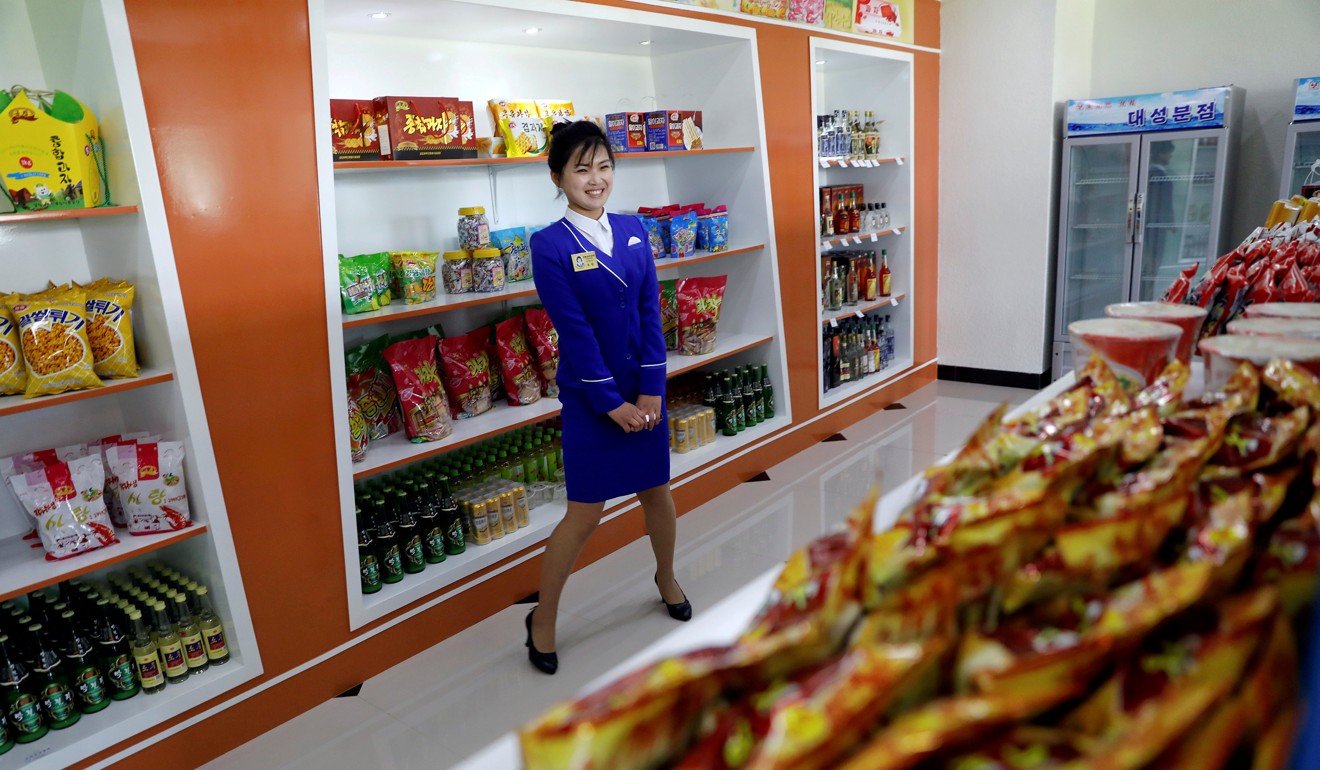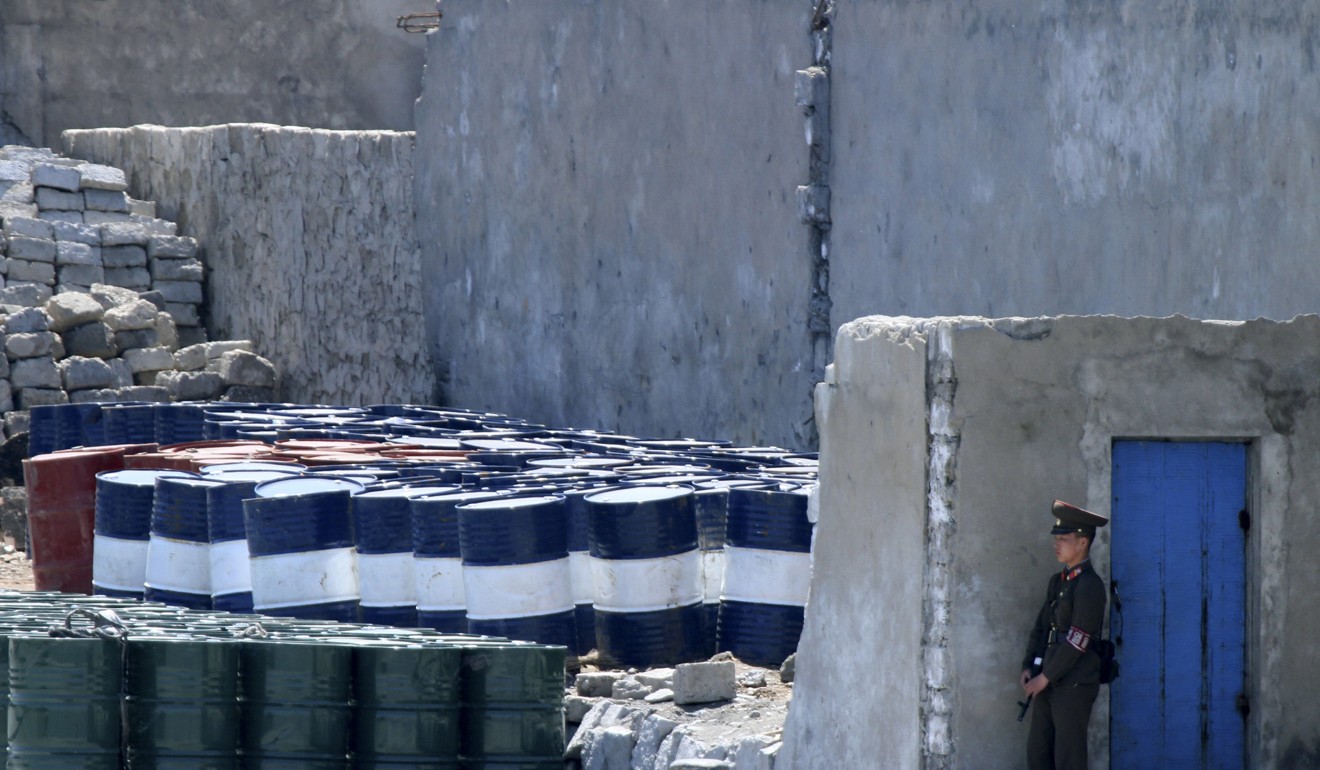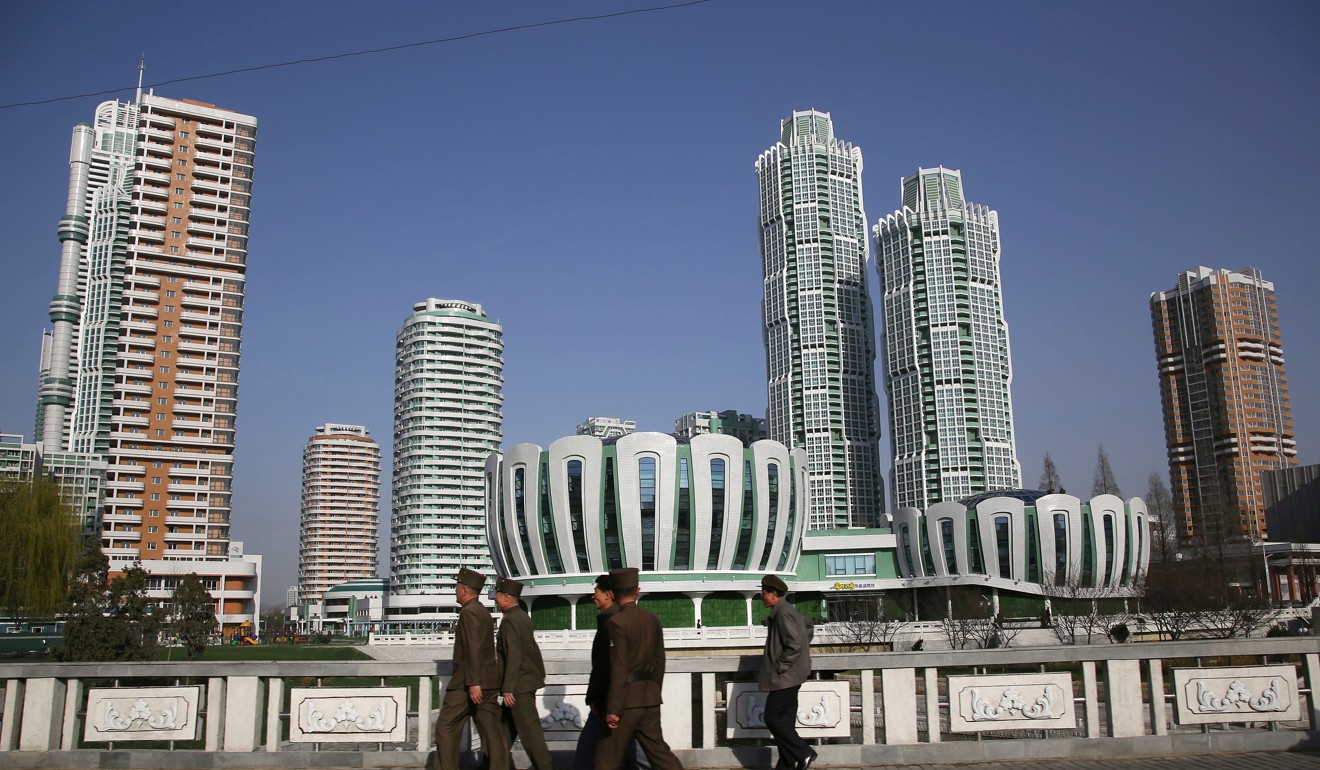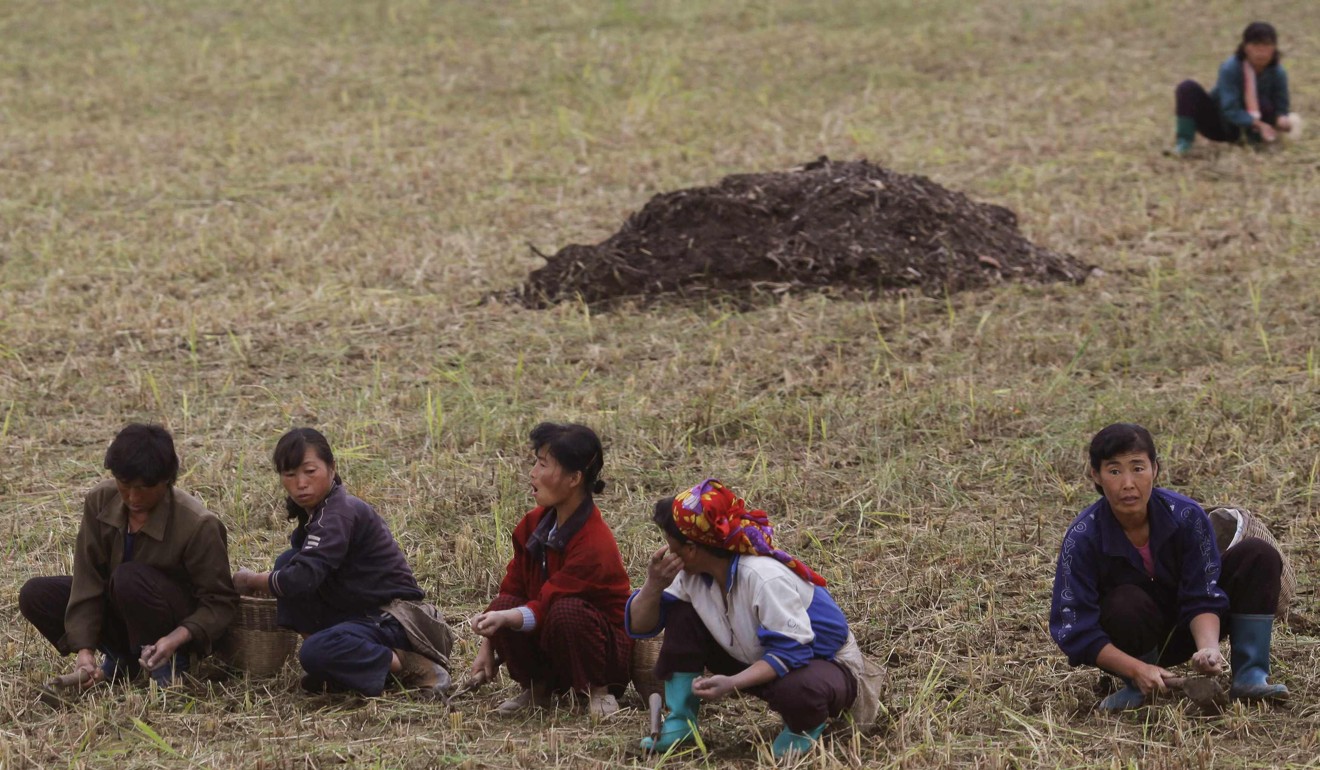
Kim, the economy and why UN sanctions did not bring North Korea to the summit table
Although UN sanctions have limited growth, North Korea’s financial health – and the physical health of its people – seem to be stabilising
If top officials in Washington and Tokyo are to be believed, the application of “maximum pressure” through United Nations sanctions was decisive in bringing North Korean leader Kim Jong-un to the summit table.
Pyongyang has been the target of a string of UN bans from trade to travel for more than a decade, the toughest coming in September when they were expanded to cover crude oil.
Just six months later Kim sent a message offering to meet US President Donald Trump with no strings attached.
Senior US and Japanese officials credited the offer in large part to the international sanctions, which they maintained had battered the already beleaguered North Korean economy.
How North Korea keeps its economy humming despite sanctions
But there is evidence – anecdotal and data – that North Korea’s economy has stabilised over the past few years, and while UN sanctions are limiting its growth, the country is far from famine or total collapse.
Reliable data on North Korea is hard to get. But information from various sources suggests that it has been making noticeable improvement since Kim came to power in December 2011 – at least before a new round of United Nations sanctions began taking effect this year.

Park En-na, South Korea’s ambassador for public diplomacy, said the general picture was that North Korea’s economy was getting better.
“Kim has introduced many new elements to the economy. To some extent, they even allowed privatisation,” Park said.
Kim has rolled out various measures to accelerate his country’s economic development and loosen the government’s grip on business and industry. In 2012, he offered factories and companies incentives to improve productivity and a year later, he established 13 new economic development zones to try to attract foreign investment. More market-oriented reforms were adopted in 2014 to further liberalise the economy. On top of that, improving living standards is now a national priority.
TICKING OVER
Although the direct effect of these decisions is hard to measure, there are some economic indicators of progress.
The Bank of Korea, the central bank in Seoul, estimated the North Korean economy had grown 1.24 per cent on average since Kim took power, expanding by 4 per cent to US$28.5 billion in 2016, the fastest growth in 17 years.
Pyongyang’s trade figures also reveal signs of economic expansion since 1996.
North Korea’s main exports are minerals, metallurgical products and manufactured goods including armaments, according to the latest Central Intelligence Agency’s World Factbook. Its main imports are petroleum, coking coal and machinery.

While its export totals have grown at an annual average of 4 to 5 per cent, its imports marked 3 to 5 per cent annual growth over the period, according to a Bank of Korea report “Analysis on the Openness and Economic Welfare of North Korea”, by Jeong Hyeok, Choi Chang-yong and Choi Ji-young.
Pyongyang’s economy is heavily reliant on China, its one and only ally. In 2016 China accounted for 85.6 per cent of its neighbour’s exports and 90.3 per cent of its imports, the CIA Factbook reported.
Market analysis firm IHS Markit estimated that trade between the two countries had increased since Kim took power, with China accounting for 81 per cent of North Korea’s trade in 2012 and 91 per cent in 2016.
Trade between the two countries fell 10.5 per cent last year as Beijing backed the tougher UN sanctions but the overall effect of these losses is not yet evident in the North Korean economy.
ON THE GROUND
International observers also report that conditions in North Korea appear stable.
David Beasley, executive director of the World Food Programme (WFP), made an official trip to North Korea last month, visiting Pyongyang, Sinwon county in South Hwanghae province and Sinuiju city in North Pyongan province.
Beasley said signs of hunger and malnourishment in the country had diminished.
“What I did not see was starvation. In the 1990s, there was famine and starvation, but I saw none of them,” he said.
North Korea shifts more responsibility to factories, farmers in effort to ignite economy
During the famine from 1994-98, between 240,000 and 3,500,000 North Koreans died from starvation or hunger-related illnesses. The estimated number of deaths during the crisis ranges widely since Pyongyang has never released any figures to the outside world.
According to a 2012 WFP survey, chronic malnutrition among North Korean children had fallen from 32.4 per cent to 27.9 per cent since 2009.
“I can tell you, in my opinion, there is a tremendous sense of optimism by the leadership … by the people that I met with in the hopes that they will be turning a new chapter in history,” Beasley said.
But he acknowledged that there was room for more improvement, saying there still were “issues of undernutrition and malnutrition. Their children may receive enough calories, but they don’t receive enough nutrition, proteins, etc.”

Chun Byung-gon, a research fellow at the Korea Institute for National Unification in Seoul, also said conditions in North Korea seemed to be on the mend.
“Despite various sanctions, North Korea’s economy has improved as it has partially introduced some aspects of a market economy,” Chun said. “Yet there is a limit for Pyongyang’s economic take-off as it still remains isolated. Without overseas capital and technology exchange with international society, Pyongyang’s economy is unlikely to further accelerate.
“It seems like Pyongyang’s will to pursue its economy first is sincere.”
NUCLEAR CONFIDENCE
North Korea’s economy-first focus emerged in April when Kim said he would start moving away from the “byungjin” policy, which calls for developing nuclear weapons and the economy simultaneously, to adopt a new strategy focusing on improving the economy.
That message was reinforced – albeit indirectly – during Kim’s talks with Chinese President Xi Jinping in the northeastern Chinese city of Dalian in May. In that meeting, Kim said he anticipated taking “phased and synchronous measures” to “achieve denuclearisation and lasting peace on the Korean peninsula”. That process would involve step-by-step eradication of nuclear weapons in return for economic sweeteners and a gradual lifting of sanctions.
Beijing vows to tackle violators of UN sanctions on North Korea
Many analysts said Kim was simply using the weapons as a bargaining chip for aid to offset the effect of the sanctions and thereby realise his much-needed economic goals.
But Chung Jae-heung, a researcher at the Sejong Institute in Seoul, said North Korea was emboldened by its nuclear strength rather than bowed by a sanctions-hit economy.
“It’s Pyongyang’s confidence as a nuclear state that brought Kim to the negotiating table, not solely UN sanctions, as its economy is not as bad as many of us think,” Chung said.
“The North Korean regime is not likely to collapse due to UN sanctions, as Beijing is unlikely to cut down its oil supply to the extent that may threaten the survival of the Kim regime.”
China ‘supports North Korean shift from nuclear to economy’
Park, the South Korean ambassador, said that having acquired nuclear technology, Kim could next turn his focus to economic development.
“It is difficult to assess how much impact UN sanctions have on North Korea,” she said. “But it is obvious that under the sanctions, they can’t make meaningful economic development as there is no investment from the outside.”

Lim Eul-chul, a North Korea expert at the Institute for Far Eastern Studies in Seoul, said that while the recent UN sanctions may have caused the North Korean economy harm, their implications were limited, and they paled in the context of recent history.
The measures taken by the UN “will never be as bad as the great North Korean famine of the 1990s”, he said.
“North Korea now has an [internal] economic power to bear the sanctions,” Lim said. “It seems like it has decided to speed up development while solving some of its economic problems imposed by sanctions through negotiating directly with the US.”

